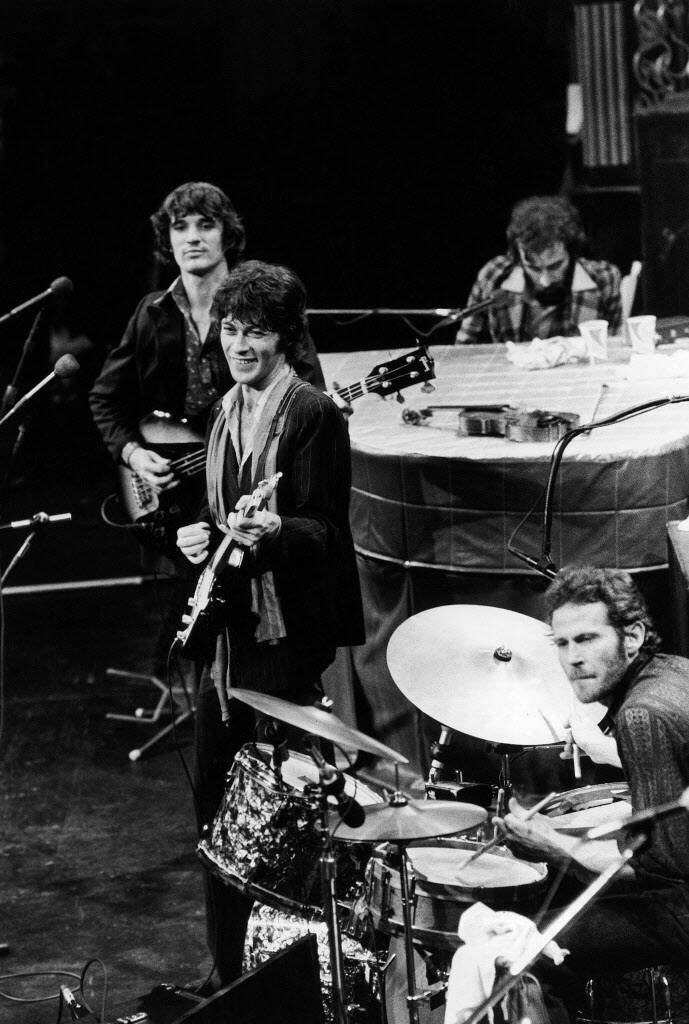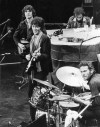Finding his voice Robertson honoured his Indigenous heritage
Read this article for free:
or
Already have an account? Log in here »
To continue reading, please subscribe:
Monthly Digital Subscription
$1 per week for 24 weeks*
- Enjoy unlimited reading on winnipegfreepress.com
- Read the E-Edition, our digital replica newspaper
- Access News Break, our award-winning app
- Play interactive puzzles
*Billed as $4.00 plus GST every four weeks. After 24 weeks, price increases to the regular rate of $19.95 plus GST every four weeks. Offer available to new and qualified returning subscribers only. Cancel any time.
Monthly Digital Subscription
$4.99/week*
- Enjoy unlimited reading on winnipegfreepress.com
- Read the E-Edition, our digital replica newspaper
- Access News Break, our award-winning app
- Play interactive puzzles
*Billed as $19.95 plus GST every four weeks. Cancel any time.
To continue reading, please subscribe:
Add Free Press access to your Brandon Sun subscription for only an additional
$1 for the first 4 weeks*
*Your next subscription payment will increase by $1.00 and you will be charged $16.99 plus GST for four weeks. After four weeks, your payment will increase to $23.99 plus GST every four weeks.
Read unlimited articles for free today:
or
Already have an account? Log in here »
Hey there, time traveller!
This article was published 10/08/2023 (901 days ago), so information in it may no longer be current.
David McLeod has a framed compact disc of Robbie Robertson’s Contact From the Underworld of Redboy hanging on his office wall at NCI-FM.
The radio station’s general manager met the songwriter and guitarist, who died Aug. 9 at age 80, in 2003 at the National Arts Centre in Ottawa, the venue for the Aboriginal Achievement Awards.
Tina Keeper, the Cree actress, producer and former Member of Parliament brought the two of them together at the event.
“He had a suit on and a scarf around his neck and he just exuded rock star and class. It was great to spend a few moments with him,” McLeod remembers. “It wasn’t like a fan chasing him down (but) I have to thank her immensely for thinking of me because she knows I’m a huge music fan.”
CHRIS PIZZELLO / ASSOCIATED PRESS FILES Musician Robbie Robertson died Aug. 9 at age 80.
McLeod idolized Robertson, not just from the music he created with the Band in the 1960s and ’70s but also his solo career, during which Robertson often drew upon his roots with the Six Nations of the Grand River.
”When he started to talk about his Indigenous connections, especially his home community, it was gratifying to know he was acknowledging it,” McLeod says.
“He was way ahead of his time. We’re talking pre-Jeremy Dutcher, pre-A Tribe Called Red. He was working with musicians of the time to mix traditional sounds and historic recordings with modern beats.
“I think he needs to be recognized for that and I don’t believe it is recognized enough.”
Among the songs on McLeod’s autographed disc, which was released in 1998, is Sacrifice, which includes words spoken by Leonard Peltier, a member of the American Indian Movement who was found guilty of murdering two FBI agents at the Pine Ridge Indian Reservation in South Dakota in 1975.
Peltier, 78, was sentenced to life in prison but his ongoing legal fight has made him a symbol for Indigenous protest in the United States. Robertson recorded a phone conversation with him and included some of Peltier’s words in the song.
“That song is not a commercial release, that’s an artistic release and that’s a community release,” McLeod says. “He recognized the importance of Leonard Peltier’s voice, to give thought to what happened to him and that whole era. I was ecstatic when he did that.”
While Sacrifice is one of Robertson’s songs that overtly focuses on his Indigenous heritage, McLeod says that influence can be heard throughout Robertson’s career, including tunes he wrote with the Band that have become Americana music standards, such as The Weight and Up on Cripple Creek.
“Americana is actually rooted within the land itself but it goes deeper than that,” McLeod says. “It goes to the First Peoples and that influence he had for music when he visited his home community of the Six Nations. That’s often overlooked and needs to be known more.”
“He was way ahead of his time… He was working with musicians of the time to mix traditional sounds and historic recordings with modern beats.”–David McLeod
Robertson was mostly a backup singer and lead guitarist with the Band. To Kingdom Come from their 1968 debut Music From Big Pink is one of his rare lead vocal performances with the group.
His songwriting talents helped the group’s three main singers shine, especially Levon Helm, whose Arkansas accent brought authenticity to The Night They Drove Old Dixie Down, and bassist Rick Danko.
Danko’s performance of It Makes No Difference is the musical high-water mark in The Last Waltz, the 1978 concert film directed by Martin Scorsese that documents Robertson’s final concert with the Band, even though the film’s performances include legends such as Bob Dylan, Neil Young, Joni Mitchell, Van Morrison and Muddy Waters.
When Dylan went electric in 1966, it was Robertson and the Band who provided the musical oomph that Dylan sought but many of his folkie fans despised. Dylan ordered the Band to ‘play it f—- loud,” after a fan called him “Judas” at a famous concert in Manchester, England, and their rendition of Like a Rolling Stone that followed did just that, as the concert recording proves in Dylan’s official release in 1998.
“Just about every place we played, people threw stuff at us, booed us and sometimes charged the stage,” Robertson said in Montreal in 2016 while promoting his memoir Testimony.
The Dylan-Band connections continued on. They teamed up on Forever Young, a 1974 anthem from Dylan’s Planet Waves record that has since been covered by almost as many artists as The Weight has over the years. They immediately teamed up for an arena concert tour that is memorialized in Before the Flood, a raucous live album of greatest hits by both Dylan and the Band — before cheering fans this time — which has become an entry point for many Dylan and Band devotees.
John Storey / The Canadian Press The Band, Richard Manuel on piano, Levon Helm on drums, lead guitarist Robbie Robertson, centre, and bass guitarist Rick Danko, perform at Winterland Auditorium in 1976.
Robertson’s voice finally became heard during his solo career, which kicked off in 1987 with a self-titled album and the single Somewhere Down the Crazy River. While he sings on the track, it’s his deep resonant voice, which would become prominent in many television documentaries that he would narrate, that has become recognizable.
The Last Waltz began a 45-year partnership between Robertson and Scorsese, which had the rocker either consulting on which music should be played in the Oscar-winning director’s films or creating music for classics such as Raging Bull, The Departed and The Irishman.
The Irishman includes the track I Hear You Paint Houses, a duet that pairs Robertson with Van Morrison, another partnership that dates back to The Last Waltz.
One project to be released later this year has the potential to be a proper bookend to Robertson’s storied career in music and film.
He has provided the music for Killers of the Flower Moon, the hotly anticipated Scorsese film about murders that took place in the 1920s at the Osage Nation in Oklahoma.
Osage elders lauded the film when it was screened at the Cannes Film Festival, as well as how respectful Scorsese depicts the Osage culture in the movie and how the director welcomed Osage actors and crew to take part in its production.
It’s a movie McLeod can’t wait to see.
”Oh my gosh, absolutely. I think it will be part of (Robertson’s) ongoing legacy,” he says. “It will remain influential to future generations. The integrity behind what he has put together is immense.”
Alan.Small@winnipegfreepress.com
Twitter: @AlanDSmall

Alan Small
Reporter
Alan Small was a journalist at the Free Press for more than 22 years in a variety of roles, the last being a reporter in the Arts and Life section.
Our newsroom depends on a growing audience of readers to power our journalism. If you are not a paid reader, please consider becoming a subscriber.
Our newsroom depends on its audience of readers to power our journalism. Thank you for your support.




